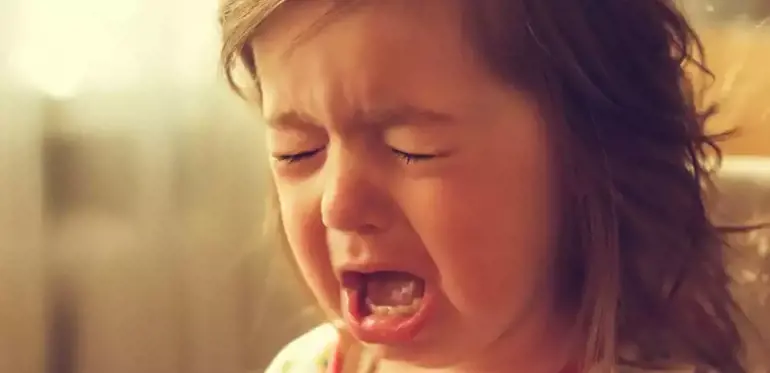We might not like to admit it, but lying is a common part of life. Grown-ups do it, and children learn to do it from an early age.
Is fibbing as bad as it sounds?
Well, according to educational psychology lecturer, Penny Van Bergen and early childhood lecturer, Carol Newall lying isn't usually cause for concern.
Lying is a natural part of a child's development
According to the experts, children usually starting telling fibs between the ages of two and four, and although a lying preschooler might sound like a bad thing, small deceits are actually one of the first signs that your child has developed a 'theory of mind'.
In other words, they are aware that others have different wants, feelings and beliefs to their own, and this burgeoning social skill is associated with positive attributes like empathy and cooperation.
For example, when a four-year-old insists that, 'Mummy said I could have a lolly', they're showing an awareness of others' beliefs, i.e. 'Daddy will be ok with me having a lolly if he thinks Mummy allowed it.'
Children lie differently as they grow
Young children might think that parents have eyes in the back of our heads and ears everywhere, but in actual fact, it's not hard to tell that a little person is lying.
First lies are usually more funny than effective, for example, when a preschooler blames the family pet for drawing on a wall, and before the age of eight, children often give themselves away when lying.
This study found that the majority of children aged three to eight will lie to 'conceal their transgressions' and that they get better at maintaining their lie as they get older.
As well as sticking to their lies more successfully, older children are also more likely to distinguish between types of lies, drawing a line between white lies and harmful untruths.
Furthermore, Van Bergen and Newall say, 'As children get older and their perspective-taking ability develops, they're increasingly able to understand the kinds of lies that will be believable to others.
Moral development also kicks in as younger children are more likely to lie for personal gain, while older children increasingly anticipate feeling bad about themselves if they lie.'
Parents and educators shouldn't necessarily be worried about lying
The good news is that lying by children isn't usually a cause for concern. Van Bergen and Newall say, 'Lying is developmentally normal and an important sign other cognitive skills are also developing.'
It's also worth remembering that children aren't the only ones telling fibs. One study found that about 40 per cent of American adults admitted to telling a lie in the past 24 hours.
These lies aren't necessarily a bad thing. As well as showing 'theory of mind', white lies can be used for good, such as to protect a person's feelings or fabricate such pleasures as Santa Claus, the Easter Bunny and the Tooth Fairy.
Are there ways for parents and educators to support children's truth-telling?
Of course, lying might be common, but it's still important that children learn to tell the truth, and to help youngsters do this, parents and educators should:
- Avoid excessive punishments for lying: this study suggesting that a 'punitive environment' actually fosters children's dishonesty
- Discuss emotional and moral scenarios with children: coaching them about when lies are most harmful, how they affect others and why it's a positive move to tell the truth
- Make sure the lie is really a lie, before responding: has there been a deliberate attempt to deceive, or is a young child just having trouble distinguishing real life and imagination?
Generally speaking, Van Bergen and Newall say that, 'Open and warm discussions about telling the truth should eventually help to reduce children's lies as they develop.'
However, if you are worried that your child is lying persistently, they're having trouble functioning normally, or they're using lies to mask mental health problems, then definitely seek the advice of a medical professional, because there is the difference between a white lie and something darker.


































